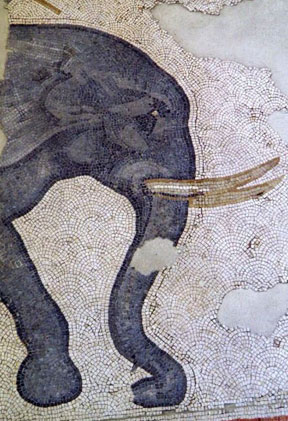We don’t expect an elevator pitch
from a poet, but can you tell us about your work in 2-3 sentences?
EDGE is named for the EDGE list,
which stands for Evolutionarily Distinct and Globally Endangered. Most of the
poems in it describe a singled endangered species, although there are some more
general poems about living through and attempting to cope with The Sixth
Extinction.
What boundaries did you break in the
writing of this book? Where does that sort of courage come from?
These are the most impersonal and
highly researched poems I’ve
ever written. I wasn’t even sure they were poems at first, but I was driven by
my obsession with The Sixth Extinction, so didn’t really care. I thought about
Marianne Moore’s animal poems as an ideal model. In educating myself, I hope to
also pass on information that might be valuable to someone else, or just make
them care more about all the transfixing creatures we are destroying in our
carelessness and greed.
Tell us a bit about the highs and
lows of your book’s road to publication.
This was the easiest road to
publication ever. Once I put the poems together into a chapbook, I sent it out
to a few contests, but in the meantime, a friend told me to try Ethel. I did,
and in under 24 hours, I heard back, We would love to publish this.
The low was purely physical: I think
because I was on sabbatical sitting at my computer (in a highly unergonomic
set-up at my dining room table) doing research and writing all day, then
jumping up to do Zumba or Pilates, I slipped a disc and spent five months in PT
and recovery.
My favorite writing advice is “write
until something surprises you.” What surprised you in the writing of this book?
Every detail I included in these
poems surprised me: I fell in love with each species while working on it. I was
also surprised by the speed of acceptance of the manuscript (I have barely had
time to get any individual poems published) and also by the excitement of my
poet-pals at these poems, which are nothing like my usual (more personal, not
to say confessional, and often humorous) work. I hope I managed to get some
humor in there, despite the tragic subject.
What’s something about your book
that you want readers to know?
Some estimates say that four species
are disappearing an hour, others say up to two hundred per day. We know only a
very small portion of the natural world, which is melting away all around us.
Each of these exquisite forms evolved over millennia and is irreplaceable, but
so many are vanishing before we even have the chance to name them or know
anything about them. The great writer and biologist E. O. Wilson warns that we
have no idea at what point, as a result, our entire ecosystem might crash.
How did you find the title of your
book?
As soon as I discovered the EDGE
list, I knew I could use it.
Who is your ideal reader?
People who think they don’t like
poetry but are surprised to find that they can read, comprehend, and enjoy my
work.
How do you approach revision?
Obsessively. Discovering the poem is
the hard part for me: my favorite metaphor is fishing. Once I’ve got one on the
line, I’m completely happy and in the zone, and I can edit for hours. I
generally start longhand, usually free writing, until the poem takes shape:
then I type it up and print it, read it out loud, and revise in pencil, mostly
trimming and trimming away, till it’s as spare as it can be. Sometimes I move
parts around. When I can’t make it any better, I give it to one of my poet pals
for criticism, and then repeat the process. I researched these poems online,
gathering pages of information, which I printed out; I highlighted whatever
caught my imagination, strung those parts together, and then started trimming
and shaping. I like Michelangelo’s metaphor
of seeing the sculpture in the stone and chiseling away until it’s
revealed; I hope I accomplished something like that with my blocks of research.
What was your experience ordering
these poems?
The first poems I wrote were the
Madagascar poems, which come early in the book. Then I tried to vary them in
length and tone, and the size of the subject species (some very tiny, others
huge). I tried to begin and end with more general poems, and intersperse those
throughout. I tried to end with a bit of hope, not to be too despairing.)
Inquiring foodies and hungry book
clubs want to know: Any food/s associated with your book?
I am the opposite of a foodie,
perhaps because I have anosmia (no sense of smell). But I would beg people to
please avoid eating red meat: while humans are only 1/3 of the mammals on the
planet by weight, another 60% are our livestock, mostly cows and pigs; this
leaves only 4% left for ALL wild creatures, from mice to elephants. You don’t
have to go vegan, or even vegetarian, but if we all simply ate less
meat, there would be that much more room on the planet for everything else. And
no farmed fish! It’s terrible for the ocean, and for wild fish.
READ MORE ABOUT THIS AUTHOR: www.barbaraungar.net
ORDER THIS BOOK FOR YOUR OWN TBR PILE:
READ A POEM FROM THIS BOOK, “El
Zunzuncito (Cuban Bee Hummingbird)”:
